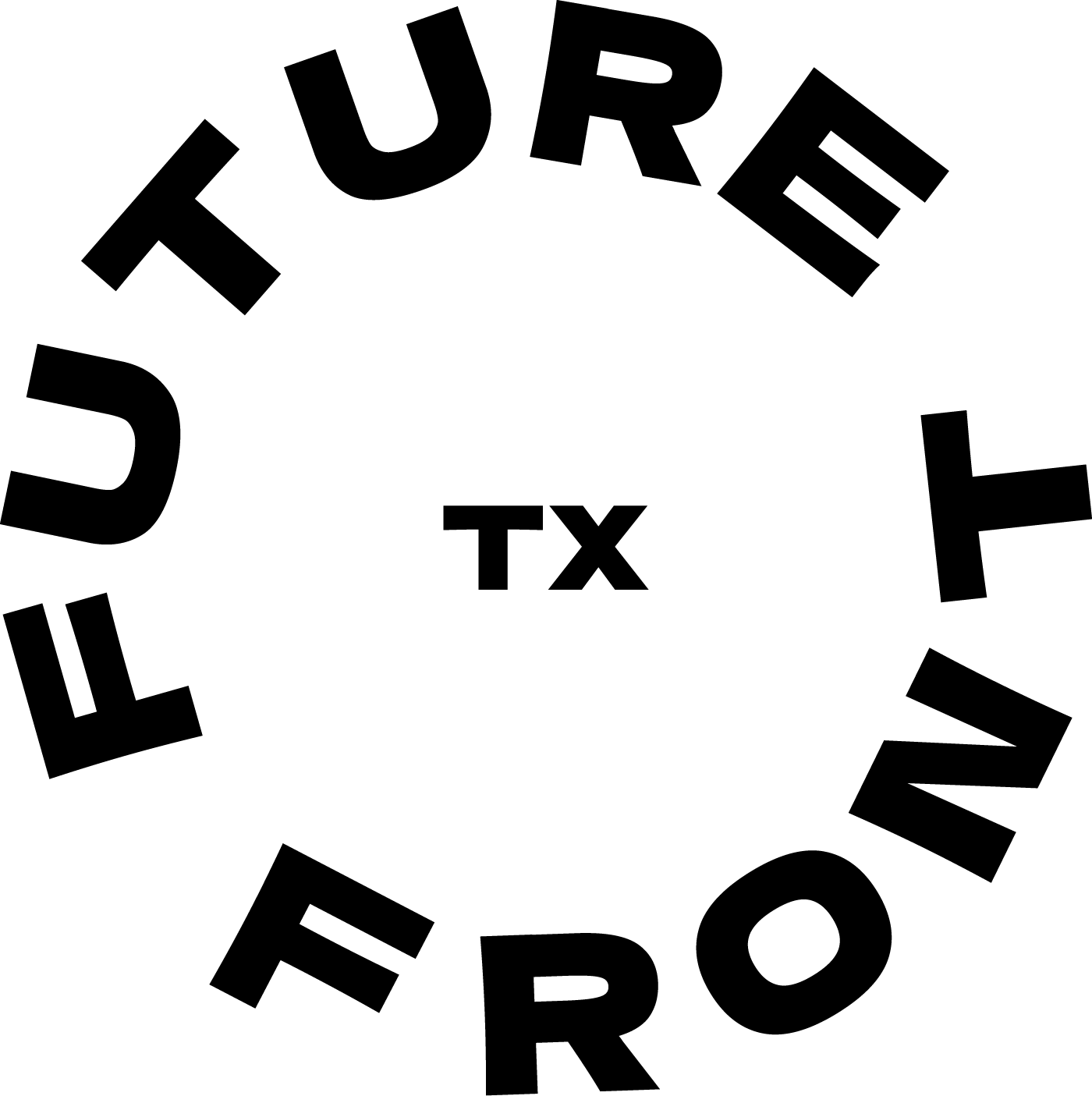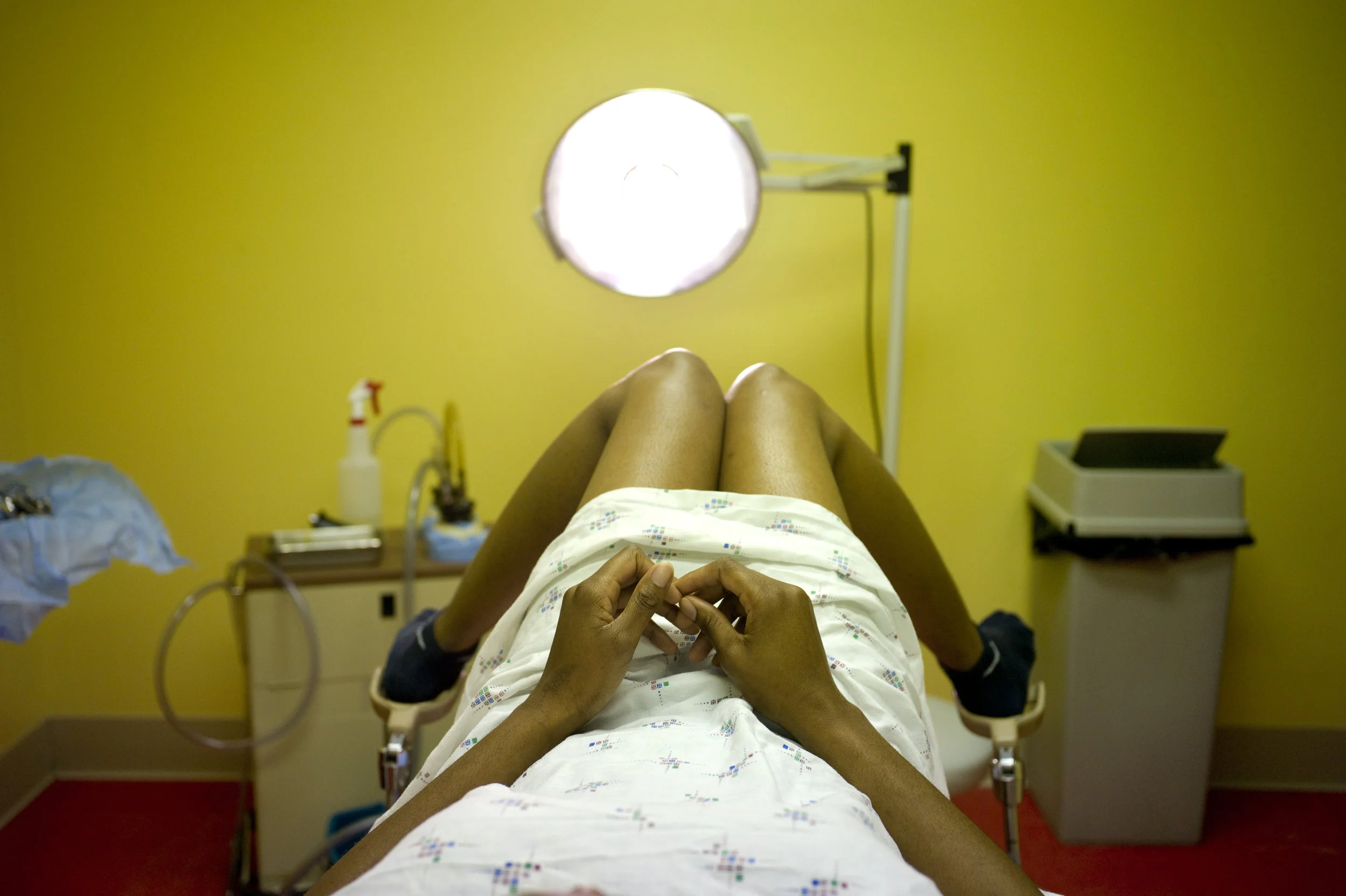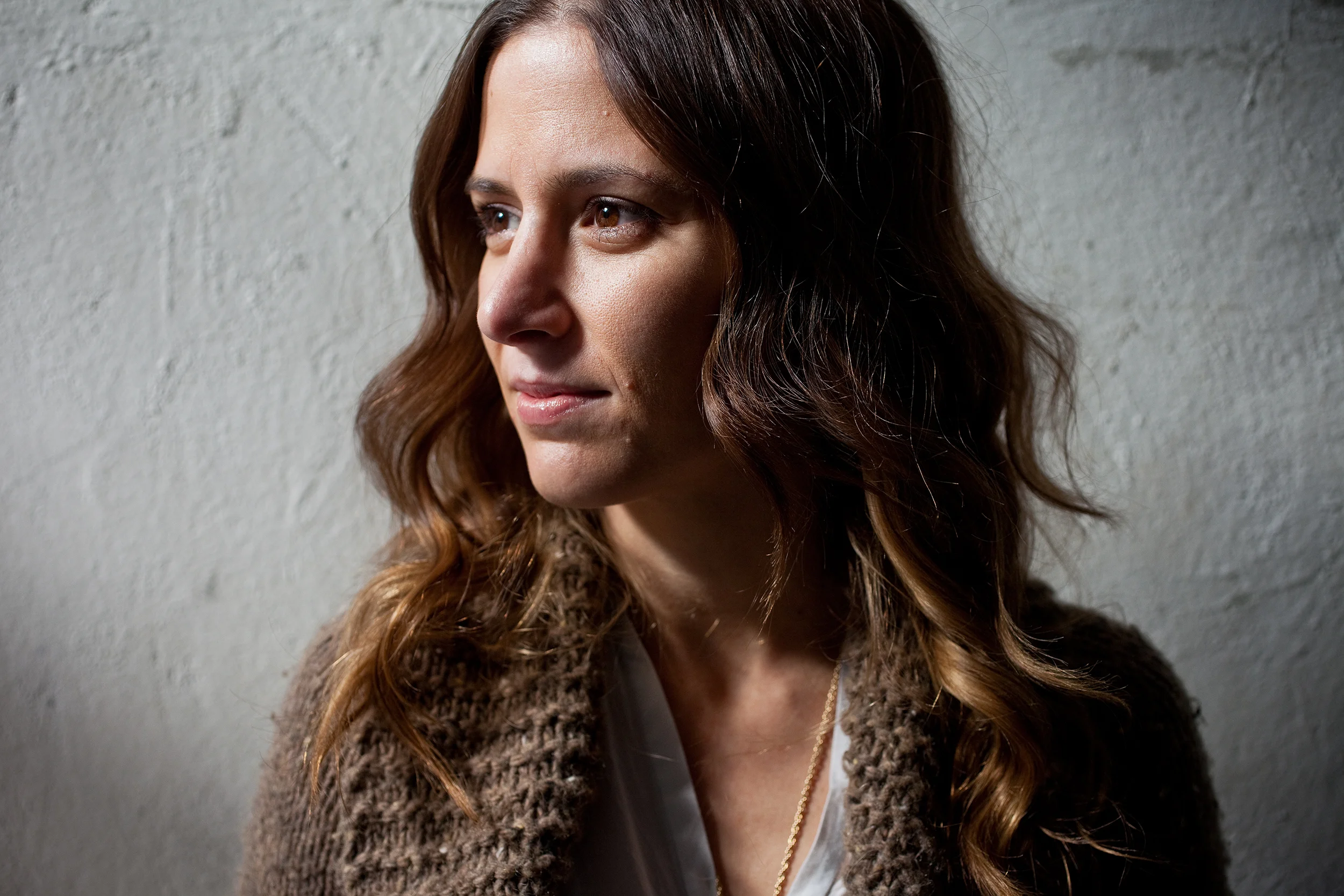On Abortion Rights and Producing Documentaries: Maisie Crow
In 2012, before Wendy Davis filibustered for 11 hours in front of Texas legislators and before trap laws became ubiquitous across the nation, lawmakers in Mississippi passed House Bill 1390, a law requiring that physicians associated with abortion facilities have admitting privileges at local hospitals. Because it would shutter the state's sole abortion provider, Jackson Women’s Health Organization, the bill was blatantly intended to make abortions inaccessible in Mississippi.
The legislation also set the stage for "Jackson," the first feature length work from filmmaker Maisie Crow, which tells the story of Jackson Women's Health Organization and gives viewers insight into the subtle tactics used by crisis pregnancy centers to further limit women's right to choose.
The film follows April Jackson, a Mississippi mother of four, as she navigates her fifth pregnancy with the aid of one such pregnancy center. "I know what I saw," Crow says of filming Jackson's experience. Watching the documentary, viewers can also begin to see the real-life effects of the incredible hurdles women face in seeking reproductive health in states like Mississippi.
Below, Crow talks filming, abortion rights, and securing funding for her first feature film.
Catch a screening of "Jackson" at BABES FEST '17: Film on July 28.
What was your process like in starting the film? Where you looking specifically to do a story on abortion rights in Mississippi or were you looking for a good story?
I started the film in 2012. I read an article on Jezebel about the bill, House Bill 1390, that was slated to close the clinic in MIssissippi and I was pretty horrified by that. So I went down there — I wasn't necessarily looking for a story or necessarily even thinking about doing a film on abortion until I read that article. I was like "Oh my god," you know, that was back before Wendy Davis did her filibuster and before trap laws were as well known as they are today.
Was it just the direness that alarmed you? That this one clinic would close because of this one law?
Yeah. I was horrified by that and when I did a little more research about it — Mississippi isn't even the only place with one abortion clinic. I was pretty surprised to see that. I'm 35; when I was in high school, we had abstinence-only education. It was terrible, but I also had access to Planned Parenthood — that's where I got my birth control. To realize that these clinics were shutting down at an alarming rate was pretty eye opening for me.
You also chose to include crisis pregnancy centers, and the work they do to limit abortion access in your film, rather than just covering the Mississippi abortion clinic and trap law straight on. What was your thinking process in that?
I think the best way to dive into an issue and to show what's happening, is to show as much of what's happening as possible. So i felt like for people to really understand the attack on abortion access, they needed to understand the three prong approach that the abortion movement takes, which is through politics, through sidewalk protesting and then through crisis pregnancy centers. I think [the centers] might be one of the most alarming components to me of the anti-abortion movement. We follow April, as you see in the film — the tactics of the crisis pregnancy center are super subtle. It's super manipulative and they really have just as large of an affect on women's lives as these laws do.
How did you find April?
I made a short film called "The Last Clinic." That film really focused on Jackson Women's Health Organization, the clinic that I follow in the "Jackson," but it was more of a profile piece of just the clinic. I realized I needed to show all sides of this issue to really tell the best story and give the best insight into what's happening. So I went to the crisis pregnancy center and asked Barbara [the executive director of the pro-life Center for Pregnancy Choices who is featured in the film] if I could film there. Once I got permission to do that, I actually sat in the waiting room at the crisis pregnancy center and spoke to women as they came in until I met April.
Did April ever mention to you why she didn't choose abortion for any of her pregnancies?
As you see in the film, she self-aborts [her first pregnancy] by drinking Clorox. So I think each time she got pregnant, there was definitely this sense of alarm. None of her pregnancies were planned and there was a lot of like, "What am I going to do? Sadly, in a place like Mississippi, drinking Clorox was a better option for her than going to a clinic. One, she didn't know where a clinic was. I found out after I made the film — I don't know why this never came up during the film — that actually the crisis pregnancy center had told her there were no abortion clinics in Mississippi so I think that the lack of information early on was one reason. Her last pregnancy, which you see at the end of the film, Barbara called her . . . and basically talked her out of it. There's so much stigma in a place like Mississippi around abortion and it's totally woven into the culture of the place. I think a lot of it had to do with the stigma and shame.
How long were you filming in Mississippi and with April and her family?
The last scene that we shot was in March of 201 6, so for four years and then it premiered in June of last year. I'm still really in touch with April. She's actually been to a handful of film festival screenings which has been really cool and I'm still filming her and her kids probably for another film down the road.
On the "Jackson" website, you fundraise for April and although it's never explicitly stated in the film — "Jackson" overall is more show than tell — it is clear what side of the issue you're on. How did you navigate that and decide what to include in the film?
I really think it's important in my documentary work to show and not tell even if I have a very specific belief. I was always upfront with everyone in the film with what my beliefs are and that I am pro-choice, but that I wanted to show both sides. I feel like I showed both sides as accurately and fairly as possible.
April's not really in touch anymore with the crisis pregnancy center. We had a film screening in Mississippi and she stood up at the end of it and said, "You know, I just want to say to all the young women in the audience that I never had a choice and I think the most important thing you can do is have a choice over what you do and how you plan your family," which was really powerful. I think it's been an evolution for her. One of the things that I think was always frustrating for us was that we never saw her getting unbiased support and so that was something that we wanted to do in terms of giving her basically support, without strings attached. So many people who saw the film want to know how they can help her — that was why we set up a Go Fund Me. I think a lot of people, after they see the film, want to know how they can help the clinic so that was why we created a website with ways that people can get involved.
There are a few moments where you see Barbara, the executive director of the featured crisis pregnancy center, start to tear up about April's situation and her concern seems somewhat sincere, if misguided. Is this a moral issue for the anti-abortion side as it's often framed?
I don't know. It's, I think, one of the reasons that we want to show and not tell. We showed what was there and I think it's just this complicated issue of these divisive topics — I don't know what the reason is that they are so adamant about stopping women from abortion. I don't know; I know what I saw. I think for some people, it is moral, but how far can you take your morals and put them on other people? That was my biggest takeaway and I don't think there's one collective reason that the anti-abortion side is the way that they are. I think that there are tactics, whether it's truly based on moral reasons or not, that takeaway certain constitutional rights that women have. The hardest thing for me is, I want to show both sides fairly, but at the end of the day, I'm still a woman of reproductive age and I don't want anyone in my way of being able to access abortion whether they believe in it or not. For me, it's fine if you don't believe in abortion, but don't stop me or other women from being able to access our healthcare.
In practical terms, how did you make the film? Did you shoot and then try to get funding for it? How did that work?
This is my first feature film, so getting grant funding was really challenging early on. A lot of it early on, I had to do on my own dime. I'm in a really lucky position because I shoot everything. I think it's harder for those that want to direct a film and don't shoot their own work, so that made it logistically and financially much easier. I'm also a still photographer so I was able to license a lot of still images and video from this to kind of help cover the costs. Over time, I was able to start applying for grants and get grant funding. Especially more towards the end.
What is the biggest takeaway that you hope people get from this film?
Yeah, I think the biggest takeaway for me, even after spending so much time down there, was that paying attention to the laws and knowing what's being passed and how that's affecting your healthcare access is important to know, but also recognizing the other ways the anti abortion movement is working to create shame and stigma, which I think is just as powerful in terms of limiting access. So really working to kind of expand the discussion between both sides, which I know sounds crazy, but do that in a way to help. I think one of the hardest things for me, as a woman, is knowing that the anti-abortion movement is anti-birth control as well as anti-abortion. I think you see that in the film where Barbara kind of tells April she should try out abstinence instead of birth control. I think that's where we need to start if we're going to have an actual discussion. The biggest thing for me is really recognizing the limits that stigma and shame place on women in terms of women seeking their own healthcare.


